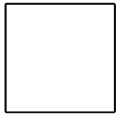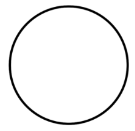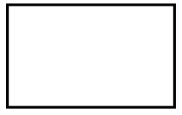Geometric constructions are precise drawings of geometrical shapes, angles, and lines. We will need a pencil, a ruler (or other straight edge), and compasses to do this. Perpendicular bisector and angle bisector are the fundamental constructs. A locus is a group of locations with similar characteristics (loci is plural). They allow us to precisely form lines and shapes. We can answer problems that require us to pinpoint a location and include intersecting loci.
Shape Construction
In geometry, the term “construction” refers to precisely drawing forms, angles, or lines. These structures simply require a pencil, compass, and straightedge (a ruler). Straightedge. There are no numbers used in this geometric design, making it the “pure” version. Due to its ability to keep its shape and the strength of its base, which also acts as a powerful support for the triangle, the triangle is the strongest form. Numerous structural supports and trusses, particularly those used in building, contain the triangle. The strongest shape is a triangle, which provides a solid base and a lot of support.
Shape construction definition
Shape construction involves using materials like paper, metal, wood, and plastic to create various shapes of items, such as cones, funnels, balls, and cylinder boxes. Shape construction is a methodical process in which a desired object is outlined on paper or drawn to demonstrate the precise illustration and measurement of the object in order to offer the object’s form.
Geometric shape
A figure or region with a defined border that is formed by combining a specific number of curves, points, and lines is referred to as a geometric shape. Triangles, circles, squares, and other geometric shapes are among them
Square
A square is a figure with four sides that is made by joining four line segments. There are four right angles formed by the intersection of the square’s equal-length line segments.
Circle
On the other hand, there are no straight lines in a circle, which is another geometric shape. It is more like a collection of connected curves. There are no angles to be found in a circle.
Rectangle
A rectangle can also be made by joining four line segments, just like a square. But the sole distinction between a square and a rectangle is that the latter has two line segments that are longer than the former’s two.
Types of shape
One, two and three dimensional shapes are the three categories into which shapes fall.
The external boundary or surface of an object is defined by its shape. Geometrical ideas of flat and solid shapes relate shapes to geometrical shapes.
Dimensional shape(only length)
Shapes with only lengths are included in the group of one-dimensional shapes known as lines. The only 1D shape is a line. Either a straight or wavy line is possible. In this context, length is referred to as one dimension.
Dimensional shape (shapes with length and breadth)
A polygon is a planar, two-dimensional shape with only straight lines and no curves. Regular polygons are those that have identical sides and angles; otherwise, they are referred to as irregular polygons. Some examples:
Triangle
These have three sides in common with other shapes. There are many various kinds of triangles, such as the equilateral triangle, which has three equal angles of 60 degrees and three equal sides of length. Another sort of triangle with two equal sides and two equal angles is the isosceles. The triangle known as a scalene triangle lacks both equal sides and equal angles. It also consists of a triangle with a right angle or a 90-degree angle as one of the angles. The definition of an obtuse triangle is a triangle with one angle that is greater than 90 degrees and two angles that are less than 90 degrees. A triangle with all sharp angles is called an acute triangle.
Quadrilateral
It is a little, four-sided figure. This group has a wide range of participants. A quadrilateral having four equal sides and four right angles is called a square. They have four lines of symmetry as well. Another quadrilateral with two lines of symmetry is the rectangle. It has four right angles as well. Four equal sides define a quadrilateral of the rhombus type.
Shapes with Curves
Circle
The circumference, diameter, and radius are the three characteristics that define a circle. In essence, it is a locus of all points that measure the same distance from the centre. The circle’s whole circumference is indicated by the term circumference.
Ellipse
An ellipse is the cross sectional shape that results from cutting a cone or cylinder at an angle. Two points that share the same name as focus define an ellipse. Any location on the ellipse’s distance from the focus points remains constant.
Conclusion
The external boundary or surface of an object is defined by its shape. Geometrical ideas of flat and solid shapes relate shapes to geometrical shapes. The strongest shape is a triangle, which provides a solid base and a lot of support. A rectangle can also be made by joining four line segments, just like a square. Shape construction involves using materials like paper, metal, wood, and plastic to create various shapes of items, such as cones, funnels, balls, and cylinder boxes. Two points that share the same name as focus define an ellipse.
 Profile
Profile Settings
Settings Refer your friends
Refer your friends Sign out
Sign out






